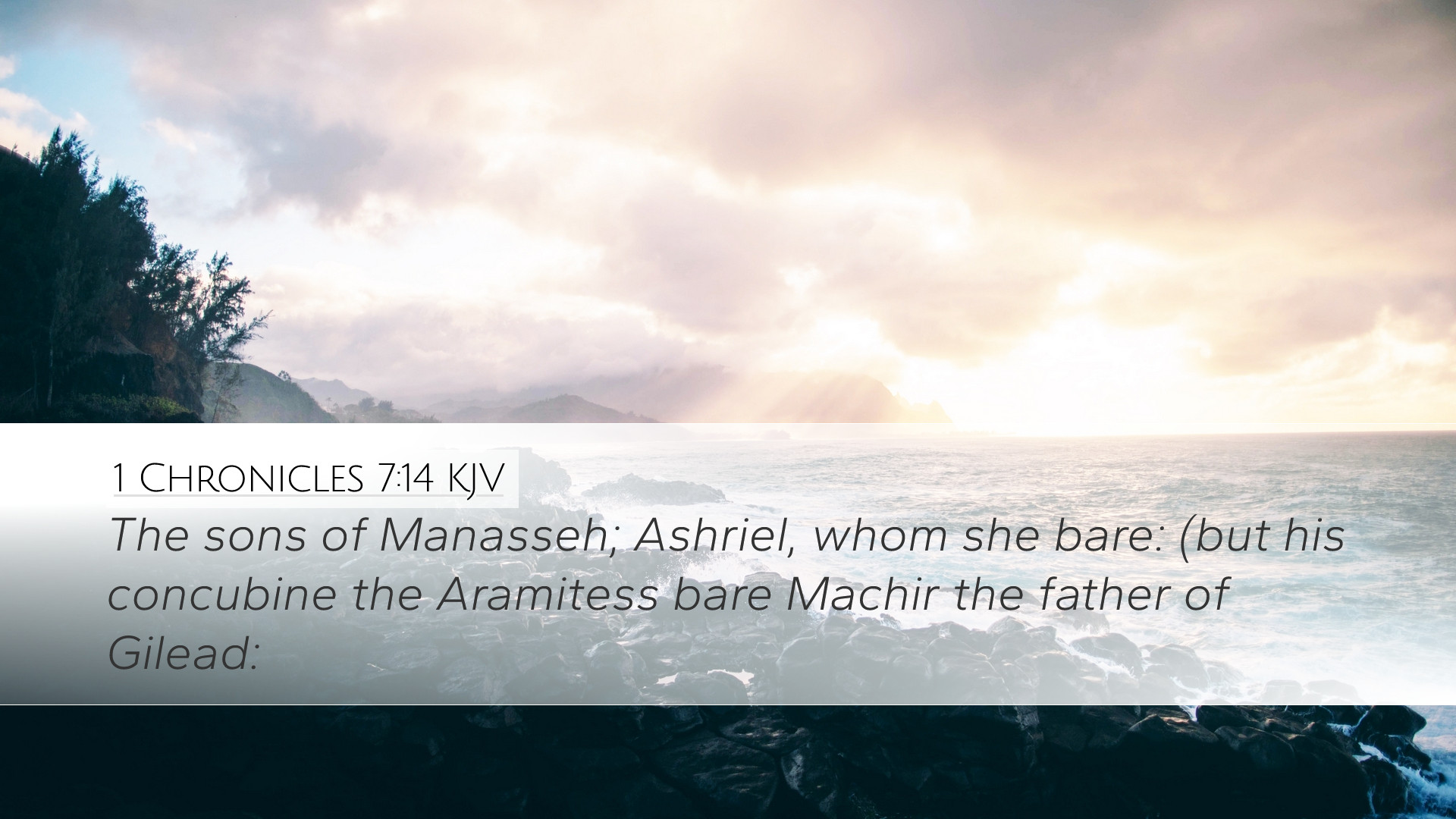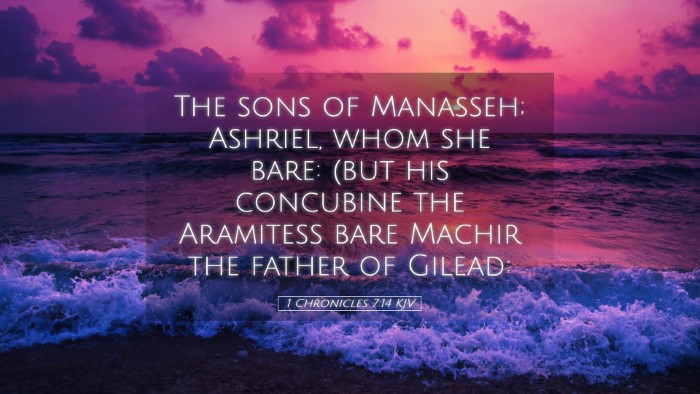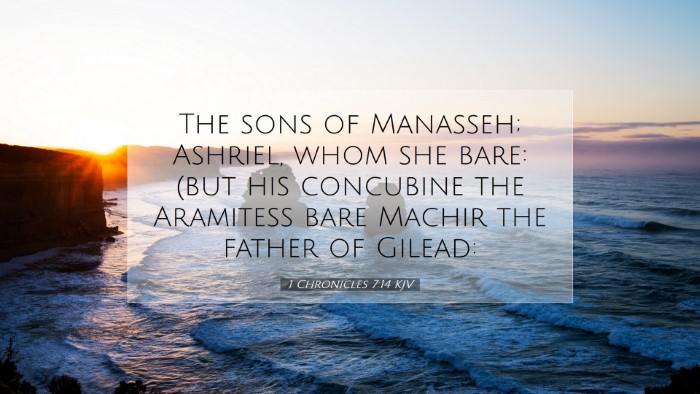1 Chronicles 7:14 - Commentary Overview
Verse: "The sons of Manasseh; Ashriel, whom she bare: (but his concubine the Aramitess bare Machir the father of Gilead)."
Exegesis and Historical Context
This verse is part of a genealogical record found in 1 Chronicles, which serves to remind Israel of its heritage and God's faithfulness through generations. The mention of Manasseh's descendants highlights not only familial connections but also God's covenant with the Israelites.
In the context of the Chronicler’s work, the genealogy serves a theological purpose: it underscores the Davidic line's legitimacy and God's promises to Israel. Manasseh's descendants are significant as they include David's lineage, playing a role in the unfolding history of the nation.
Insights from Matthew Henry
Matthew Henry emphasizes the importance of tracing the lineage in Chronicles, stating that it provides clear evidence of God’s faithfulness. He notes that Ashriel represents the firstborn and implies a leadership role within the family structure. The mention of the concubine and her offspring, Machir, indicates a complex family dynamic that is prevalent in biblical texts, showcasing both the blessings and challenges in Israel's history.
Henry also acknowledges the significance of heritage and identity in building a nation, making it clear that understanding one’s lineage is crucial for recognizing God’s purpose and the unfolding of His plan through generations.
Reflections from Albert Barnes
Albert Barnes provides a detailed analysis of the names mentioned and their implications. He states that Ashriel, though the firstborn, did not occupy the primary position of leadership due to the presence of Machir, who emerged as a notable figure in Israel's history, particularly noted for his valor and contribution during the Israelite conquests.
Barnes elaborates on the role of Machir as the father of Gilead, pointing to the territorial and military significance within the biblical narrative. He interprets the involvement of a concubine as a reflection of the societal norms of the time, where such unions often expanded family lines and influence.
Thoughts from Adam Clarke
Adam Clarke delves into the nuances of the text, highlighting the socio-cultural context of concubinage in ancient Israel. He suggests that the references to concubines and their offspring illuminate the broader narrative of family and tribal identity among the Israelites.
Clarke also discusses the notion of divine providence seen in the accounts of these families, reinforcing the idea that every lineage, however complex, plays a role in God's overarching plan. He suggests that understanding these familial relationships is essential for grasping the theological implications of the Israelites’ journey.
Theological Implications
This passage, while brief, resonates with themes of legacy, identity, and divine calling. The genealogy in 1 Chronicles is not merely a record of names; it serves to illustrate how God works through families and generations to fulfill His promises. For pastors and theologians, this invokes a consideration of how religious identity is intertwined with personal and familial history.
Moreover, it brings forward the conversation about significance in community structures. Recognizing one’s heritage can provide a deeper understanding of one's place in God’s plan and can also encourage believers to celebrate both the blessings and trials inherited from past generations.
Applications for Today
In pastoral ministry, this passage can serve as a reminder to congregants that their family histories, including complexities, contribute to their present faith journey. It encourages a dialogue about the importance of heritage in shaping one's understanding of God’s work in the world.
For students and scholars, the genealogical elements of the Old Testament prompt critical examination of how such texts inform our understanding of biblical theology. Recognizing that every name has a story can foster a richer appreciation for the diverse narratives that form the tapestry of Israel's history.
Furthermore, engaging with the cultural practices within the text allows for a broader understanding of how God has historically been at work within society’s structures, providing valuable insights into His character and intentions.
Conclusion
1 Chronicles 7:14 serves as a succinct but powerful link in the extensive genealogical chain that highlights God's faithfulness and the significance of every individual in His plan. By examining the echoes of this verse through public domain commentaries, scholars and theologians can derive profound insights into the nature of God, the complexity of human relationships, and the overarching narrative of redemption that runs throughout Scripture.


